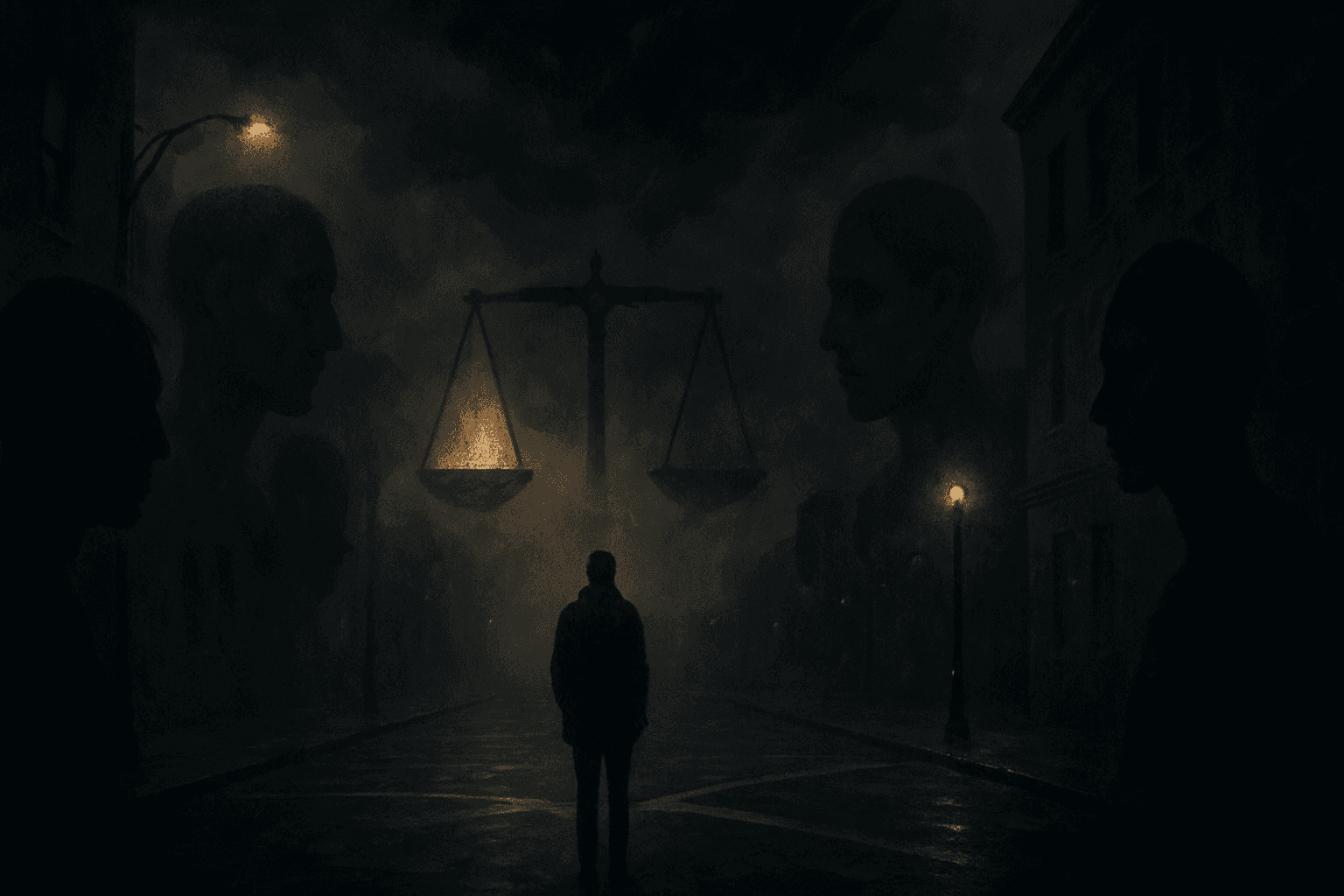The Weight of Choices: Exploring Moral Conflict in Crime and Punishment

Moral conflict is at the heart of Dostoevsky’s * Crime and Punishment *, weaving a complex tapestry that reveals the struggles of its characters, particularly the protagonist, Raskolnikov. As he navigates the grim streets of St. Petersburg, every decision he makes is steeped in ethical ambiguity, forcing readers to grapple with the weight of his choices.
From the outset, Raskolnikov is portrayed as a deeply conflicted individual. Living in poverty and isolation, he contemplates a horrific act that he believes could justify a greater good. Yet, even as he rationalizes the murder of Alyona Ivanovna, the pawnbroker, his conscience is a constant tormentor. This internal battle becomes increasingly fierce as he grapples with guilt and fear after committing the crime. It’s a chilling dance between intellect and morality, as Raskolnikov justifies his actions through twisted philosophical reasoning but ultimately cannot escape the psychological ramifications of his choices.
As the story unfolds, the encounters Raskolnikov has with other characters further illuminate the theme of moral conflict. Take his interactions with Svidrigaïlov, for instance. This character embodies moral decay and manipulation, and his relationship with Dounia, Raskolnikov’s sister, adds another layer of complexity to Raskolnikov’s already fraught emotional landscape. Raskolnikov’s disdain for Svidrigaïlov’s hedonism clashes with his desperate need to protect Dounia, showcasing his struggle between familial loyalty and the darker impulses within himself.
Raskolnikov's moral turmoil intensifies when he meets Sonia, a figure of compassion and resilience. Their conversations are imbued with a raw honesty that challenges Raskolnikov to confront his guilt and seek redemption. Sonia’s unwavering support becomes a lifeline, drawing out the humanity buried beneath Raskolnikov’s pride and self-loathing. It is through Sonia that Raskolnikov's internal conflict finds a glimmer of hope; she embodies the possibility of forgiveness and the redemptive power of love.
The theme of moral conflict reaches its zenith in the Epilogue, where Raskolnikov is faced with the consequences of his actions during his time in prison. The weight of his guilt is palpable, and his reflections reveal a profound struggle for understanding and atonement. The deterioration of his mother and the sacrifices made by his sister and friends further complicate his journey, emphasizing how individual choices ripple through the lives of those we love.
Ultimately, * Crime and Punishment * serves as a haunting reminder of the moral dilemmas we all face. Raskolnikov’s journey is not just about crime and punishment; it’s an exploration of the human condition, the weight of our choices, and the complex interplay between guilt, redemption, and the yearning for connection. In a world where moral lines are often blurred, Dostoevsky prompts us to ask ourselves: What would we do in the face of such profound conflict?
In the end, Raskolnikov’s path to redemption is left open, inviting readers to ponder whether true atonement is ever achievable and what it means to confront one’s conscience in a world rife with moral ambiguity. The haunting question remains: can we ever escape the consequences of our choices?
Engaging with these characters invites us to reflect on our own moral landscapes, making * Crime and Punishment * a timeless exploration of humanity's most profound conflicts.
Books: Crime and Punishment
Authors: Fyodor Dostoyevsky
Publishers: Public Domain